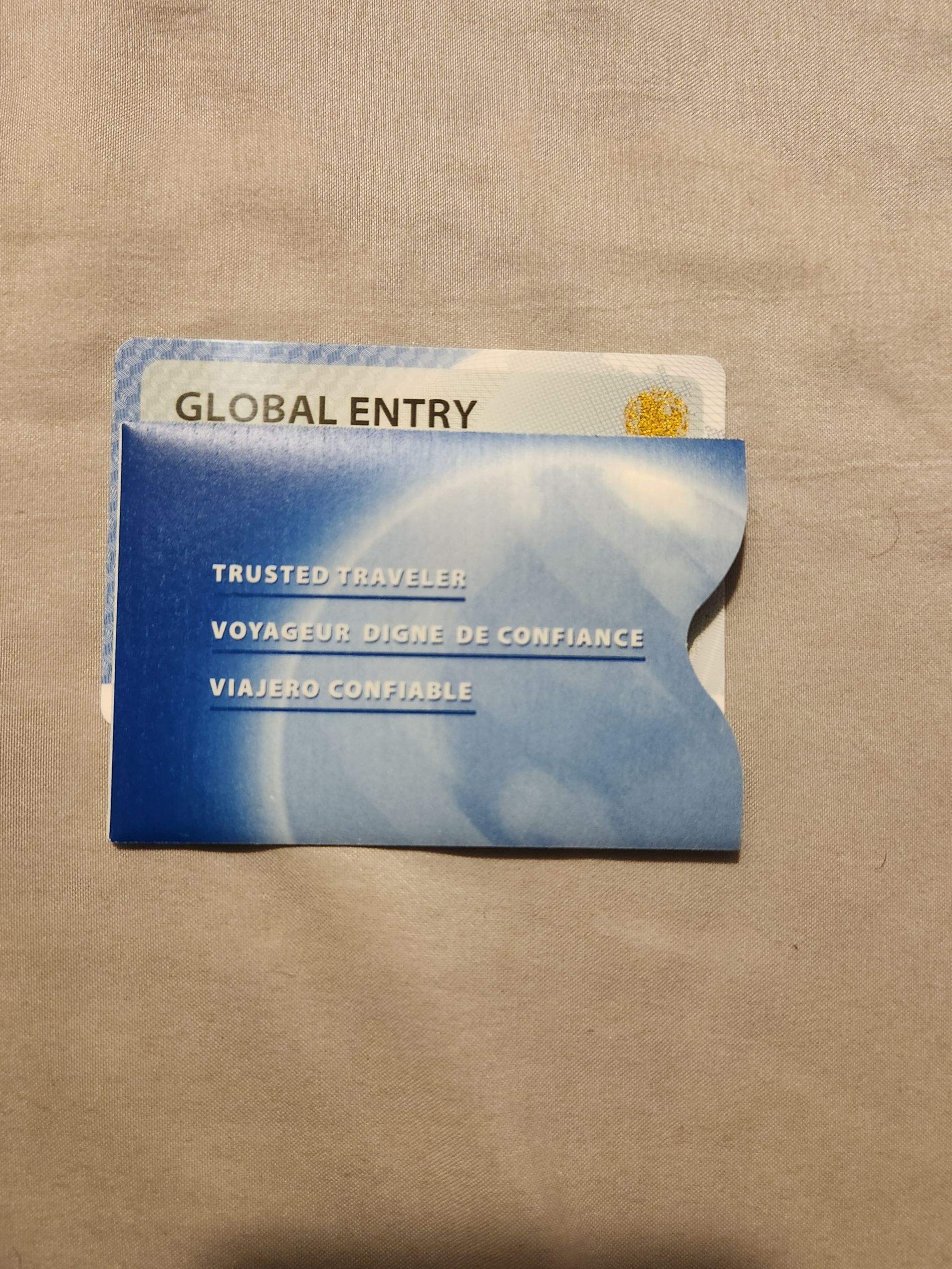Unlock Your Travel Potential with Mobile Wallets
Traveling in today’s fast-paced world has become more than just a journey from point A to B; it's an experience that can be enhanced by technology. Enter mobile wallets — a game-changer for frequent travelers who crave convenience and efficiency on the go. With the rise of digital payment solutions like Apple Pay and Google Wallet, more and more globetrotters are discovering how these handy apps can streamline their travel experience. Imagine breezing through airport security with your boarding pass stored securely on your phone or effortlessly managing your itinerary at your fingertips. It’s no wonder mobile wallets are gaining traction as the ultimate travel companion.
But it’s not just about convenience; it’s about redefining how we interact with our travel plans. The importance of technology in enhancing travel experiences cannot be overstated, especially as we move toward a future where digital passports and biometric authentication become the norm. Picture this: you’re exploring the bustling streets of Tokyo, and instead of fumbling for cash or searching for your credit card, you simply tap your phone to make a purchase or access local deals. As we dive deeper into the world of mobile wallets, we'll uncover how these tools can unlock your travel potential, making every trip smoother, smarter, and more enjoyable. Ready to revolutionize the way you travel? Let’s get started!
What Are Mobile Wallets?
Mobile wallets are digital applications that allow you to store your payment information, tickets, and other important travel documents right on your smartphone. Think of them as your virtual wallet, where you can safely keep everything you need for a trip without the bulk of physical cards or paper tickets. With just a tap or scan, you can pay for purchases, board your flight, or access loyalty rewards — all from your device. This tech-savvy solution has revolutionized how we handle our finances and travel logistics, making the mobile wallet experience an essential tool for modern travelers.
Some popular mobile wallet apps include Apple Pay, Google Wallet, and Samsung Pay. Each of these platforms offers unique features tailored to enhance your travel experience. For instance, Apple Pay allows you to make contactless payments at millions of locations worldwide, while Google Wallet integrates seamlessly with Google services to help you manage your travel itineraries. Imagine arriving at the airport and having all your boarding passes neatly organized in one app — no more fumbling through emails or printed tickets. You simply open the app, scan your boarding pass, and you're on your way!
Not only do mobile wallets streamline travel preparations, but they also provide a more secure way to manage your finances. When you use a mobile wallet, your actual card numbers are not shared with merchants; instead, a unique token is generated for each transaction, significantly reducing the risk of fraud. Plus, many apps offer biometric authentication, such as fingerprint recognition or facial ID, ensuring that only you can access your financial information. This level of security is especially beneficial when traveling abroad, where the risk of theft or loss can be higher.
In addition to payment functionalities, mobile wallets often come packed with other useful features that can enhance your travel experience. From storing loyalty program details and redeeming points to finding local deals and discounts based on your location, these apps help you maximize every dollar spent during your journey. By embracing mobile wallets, you not only simplify your travel plans but also unlock a world of financial benefits and convenience that traditional payment methods simply can’t compete with.
Streamlining Travel Preparations
When you're gearing up for a trip, the last thing you want to deal with is a jumble of paper tickets and scattered boarding passes. This is where mobile wallets truly shine. With the ability to store your boarding passes and tickets right on your smartphone, you can say goodbye to the fear of misplacing important travel documents. For instance, airlines like Delta and Southwest have embraced mobile technology, allowing you to check in and receive your boarding pass directly through their apps. Simply scan your phone at security or boarding, and you're on your way — no more digging through bags or worrying about crumpled paper!
But it doesn't stop there. Mobile wallets also streamline itinerary management, making it easier than ever to keep track of your travel plans. Have you ever been halfway to the airport only to realize you forgot the details of your hotel booking? With apps like TripIt, you can forward confirmation emails to the app, which compiles everything into a neat itinerary accessible from your mobile wallet. This means all your flight details, accommodation information, and even rental car bookings are at your fingertips, ready for quick reference without the hassle of searching through countless emails.
The integration of travel technology into mobile wallets not only simplifies preparations but also enhances your overall travel experience. Imagine landing in a new city and immediately having access to all your travel information without fumbling for printed documents or Wi-Fi connections. Plus, many mobile wallets provide real-time updates — like flight changes or gate assignments — keeping you informed as you navigate through the hustle and bustle of the airport. By reducing the stress associated with travel logistics, you can focus more on enjoying your adventure and less on keeping everything organized.
In essence, mobile wallets revolutionize how we prepare for travel by centralizing essential information and providing easy access whenever needed. Whether you're a frequent flyer or an occasional vacationer, embracing this technology can help you streamline your travel preparations and ensure a smoother journey from start to finish.
Financial Benefits of Using Mobile Wallets
When you’re traveling abroad, one of the most daunting tasks can be navigating currency exchange. Traditional currency exchange services often come with hefty fees and unfavorable rates, eating away at your travel budget. This is where mobile wallets step in to save the day. Many mobile payment apps, such as Apple Pay and Google Wallet, allow you to hold multiple currencies without the need for physical cash or conversion fees. For instance, if you're traveling to Europe, you can link your bank account and pay directly in euros using your mobile wallet, often at a better exchange rate than what you’d find at a local exchange booth. This not only saves you money but also keeps your travel experience seamless and stress-free.
In addition to minimizing exchange fees, mobile wallets offer fantastic opportunities for cashback and rewards. Imagine sipping on a cappuccino at a quaint café in Rome and using your mobile payment app to pay for it. Depending on the wallet you use, you might earn points towards future flights or hotel stays just for that purchase. Many travel apps now integrate loyalty programs directly into their platforms, making it easier than ever to rack up rewards while on the go. For example, if you frequently stay at a particular hotel chain, linking their loyalty program to your mobile wallet could mean earning double points every time you swipe for a room — talk about a win-win situation!
Moreover, mobile wallets can help you manage your finances while you travel. Many of these apps come equipped with budgeting features that allow you to track spending in real time. As you enjoy those local delicacies or splurge on souvenirs, you'll have a clear view of how much you've spent in each category. This empowers you to make informed decisions on whether to indulge in that extra slice of pizza or save for a guided tour of the ancient ruins. With all these financial benefits combined, it’s no wonder that savvy travelers are embracing the mobile wallets experience to maximize their adventures without breaking the bank.
Enhanced Security Features
In today’s fast-paced world, security is more important than ever, especially when it comes to managing your finances while traveling. Mobile wallets have stepped up to the plate with robust security features designed to protect your information from fraud and theft. For instance, many mobile wallets employ tokenization, a process that replaces your actual credit card number with a unique identifier during transactions. This means even if someone intercepts your payment data, they won't be able to access your real account details. Imagine enjoying a café in Paris and paying for your croissant with just a tap of your phone, all while knowing that your sensitive information is shielded from prying eyes.
Biometric authentication is another game-changer in the realm of secure travel. With features like fingerprint scanning or facial recognition, mobile wallets add an extra layer of security that traditional payment methods lack. This is particularly beneficial when you’re on the go, as you can quickly authorize payments without having to remember complicated PINs or passwords. Take, for example, a recent trip to Tokyo where I used my smartphone to pay for a train ticket. The ease of simply placing my thumb on the sensor felt seamless and safe, allowing me to focus on navigating the city rather than worrying about my wallet being pickpocketed.
Moreover, the enhanced convenience offered by mobile wallets goes hand-in-hand with their security features. By storing all your payment methods in one secure app, you can reduce the risk of losing physical cards and cash. If your device happens to get lost or stolen, most mobile wallets allow you to remotely disable access, protecting your funds from unauthorized use. This peace of mind can make a world of difference when exploring bustling markets or wandering through unfamiliar neighborhoods.
In essence, mobile wallets not only simplify transactions but also provide travelers with the security necessary to enjoy their adventures fully. By leveraging advanced technology like tokenization and biometric authentication, these digital payment solutions are redefining what secure travel looks like in the modern age. So next time you’re packing for a trip, consider how mobile wallets can offer both enhanced convenience and protection against potential threats.
Accessing Local Deals and Discounts
One of the most exciting features of mobile wallets is their ability to help travelers unlock local deals and discounts while exploring new destinations. Imagine strolling through a vibrant market in Barcelona or a bustling street in Tokyo, and with just a few taps on your smartphone, you discover exclusive offers at local shops and restaurants. Mobile wallets, like Apple Pay or Google Wallet, often come equipped with geolocation features that can alert you to nearby promotions, ensuring you don’t miss out on any savings. These instant notifications can guide you to hidden gems that you might not have found otherwise, making your travel experience even more enriching.
Additionally, many mobile wallets integrate loyalty programs directly into their platforms, allowing users to accumulate rewards effortlessly. For example, if you regularly grab coffee from a local chain that partners with your wallet app, each purchase contributes to your loyalty points without needing to carry a physical card. This means that whether you're sipping espresso in Italy or enjoying a quick bite in Thailand, you can earn points towards free items or discounts on future purchases — all while keeping your travel essentials neatly organized in one place. It's a seamless way to enhance your mobile wallets experience, combining convenience with the potential for savings.
Moreover, some mobile wallets even collaborate with local businesses to provide exclusive discounts for travelers. For instance, when visiting New York City, you might find that using your mobile wallet at participating museums can grant you reduced admission fees or special access to exhibits. Such partnerships not only benefit tourists by saving them money but also support local businesses eager to attract travelers. By harnessing the power of these digital payment solutions, you can maximize your travel budget and enjoy more experiences without breaking the bank.
In a world where every penny counts, integrating local deals and loyalty programs into your travel routine through mobile wallets is a game-changer. It transforms mundane transactions into opportunities for exploration and discovery. So next time you're planning your itinerary, remember to check your mobile wallet for any available promotions that can make your adventure even more rewarding!
Travel Budgeting Made Easy
When you're on the go, keeping track of your expenses can feel like a daunting task. Thankfully, mobile wallet apps have come to the rescue, turning what was once a cumbersome chore into a seamless process. With just a few taps on your smartphone, you can track your spending in real-time. For instance, imagine you’re exploring the streets of Barcelona, indulging in tapas and local wines. Instead of fumbling with receipts or trying to remember how much you spent at each stop, your mobile wallet app automatically logs every purchase, giving you an instant overview of your daily expenses.
Setting a travel budget has never been simpler, either. Most mobile wallet apps allow you to establish a spending limit for your trip and categorize your expenses — be it dining, activities, or shopping. This feature is especially useful for those who want to maintain financial discipline while enjoying their travels. For example, if you allocate $50 for souvenirs in Tokyo, you can easily check your remaining balance as you browse through the vibrant markets. This not only helps prevent overspending but also encourages mindful purchasing, ensuring that every yen spent adds value to your experience.
Moreover, some apps even provide insights into your spending habits over time. If you've noticed that you tend to splurge on dining out while traveling, these insights can help you adjust your budget for future trips. Imagine planning a week-long getaway to Bali and discovering that last year’s food expenses exceeded your expectations. With this information, you can strategize to either explore more affordable dining options or allocate funds elsewhere — maybe for that sunset dinner cruise you’ve been eyeing!
In a world where every dollar counts, having a mobile wallet that supports your budgeting efforts can make all the difference. It transforms the way you approach travel finances from a tedious task into an empowering experience, allowing you to focus more on enjoying your adventure rather than worrying about the cost. So next time you pack your bags, don’t forget to download a mobile wallet app that suits your needs — it could very well be the key to unlocking stress-free travel budgeting!
The Future of Travel with Mobile Wallets
As technology continues to evolve at lightning speed, the future of travel with mobile wallets looks bright and full of potential. One exciting trend is the integration of artificial intelligence (AI) into mobile wallet apps, which can help travelers curate personalized experiences. Imagine an AI-driven feature that suggests local attractions based on your preferences or alerts you to nearby dining discounts while you're exploring a new city. This kind of tailored mobile wallets experience could make your travels not only smoother but also more enriching.
Another area of growth is the expansion of blockchain technology within mobile wallets. This innovation could dramatically enhance security, making transactions even safer than they already are. With blockchain, travelers could enjoy a transparent and tamper-proof method for handling their finances abroad. For instance, smart contracts might enable automatic currency conversions at favorable rates, eliminating the hassle of finding a currency exchange service while you're busy soaking in the sights. Such advancements promise to revolutionize how we interact with our money while traveling.
Looking ahead, we can also expect mobile wallets to become increasingly integrated with augmented reality (AR) features. Picture this: as you wander through a bustling market, you simply point your phone at a stall and instantly receive information about prices, vendor ratings, and even payment options directly through your mobile wallet. Not only would this streamline your shopping experience, but it would also empower you to make more informed decisions on the go.
In addition to these technological advancements, there's a growing emphasis on sustainability within the travel sector. Mobile wallets are likely to play a pivotal role in promoting eco-friendly travel choices, such as recommending carbon offset programs during your booking process or highlighting sustainable accommodation options. As travelers become more conscious of their environmental footprint, mobile wallets can serve as valuable tools in creating a positive impact on the world around us. The future of travel with mobile wallets is not just about convenience; it's about enhancing the entire experience while making meaningful choices along the way.
Embrace the Future of Travel with Mobile Wallets
In a world where convenience and efficiency reign supreme, mobile wallets have emerged as indispensable tools for travelers. From streamlining your travel preparations — like storing boarding passes and managing itineraries — to providing enhanced security features that protect your financial information, these digital wallets truly elevate the travel experience. Moreover, their ability to track expenses in real-time helps you stick to your budget, while unlocking local deals and rewards can enhance your overall adventure, making every trip not just enjoyable but also financially savvy.
So why not take the plunge and embrace this technology? Imagine breezing through airport security with your boarding pass at your fingertips, enjoying cashless transactions at local cafes without fumbling for change, and effortlessly accessing exclusive discounts simply by using your mobile wallet. The mobile wallets experience is set to revolutionize how we travel, making each journey smoother and more rewarding. As we move towards a more tech-savvy future, harnessing the power of mobile wallets will undoubtedly transform your travels into unforgettable experiences. Happy travels!



